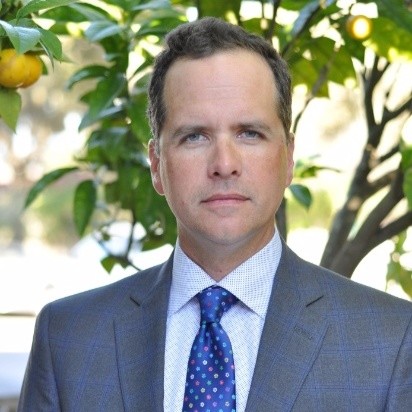COBOL
See the following -
CMS To Invest $5+ Billion a Year in Open Source and Cloud-based IT Infrastructure for Medicaid
 After more than 40 years of relying on monolithic mainframe platforms to administer its services, the Centers for Medicare & Medicaid Services (CMS) has embraced a new modular, open and agile approach to Medicaid health information technology for the Federal government and States. In many ways, this is the best of what open source advocates and technology innovators could have hoped for when it comes to open source policy from a government agency. According to Andrew Slavitt, Acting Administrator of CMS, the agency will spend more than $5 billion a year to fund this transformation.
After more than 40 years of relying on monolithic mainframe platforms to administer its services, the Centers for Medicare & Medicaid Services (CMS) has embraced a new modular, open and agile approach to Medicaid health information technology for the Federal government and States. In many ways, this is the best of what open source advocates and technology innovators could have hoped for when it comes to open source policy from a government agency. According to Andrew Slavitt, Acting Administrator of CMS, the agency will spend more than $5 billion a year to fund this transformation.
Hiding Our Heads in the Sand - Why the US is Unprepared for Pandemics and Disasters
 A new report from the Trust for America's Health minces no words. President and CEO John Auerbach charges: COVID-19 has shined a harsh spotlight on the country's lack of preparedness for dealing with threats to Americans' well-being. Years of cutting funding for public health and emergency preparedness programs has left the nation with a smaller-than-necessary public health workforce, limited testing capacity, an insufficient national stockpile, and archaic disease tracking systems - in summary, twentieth-century tools for dealing with twenty-first-century challenges.
A new report from the Trust for America's Health minces no words. President and CEO John Auerbach charges: COVID-19 has shined a harsh spotlight on the country's lack of preparedness for dealing with threats to Americans' well-being. Years of cutting funding for public health and emergency preparedness programs has left the nation with a smaller-than-necessary public health workforce, limited testing capacity, an insufficient national stockpile, and archaic disease tracking systems - in summary, twentieth-century tools for dealing with twenty-first-century challenges.
- Login to post comments
How I Ended Up Working in Open Source Healthcare
 These days I am one of a small handful of core committers to OpenEMR, but more importantly I am the visible face of the project through my role as the current president of the OEMR.org 501(c)(3), standing on the contributions of a respectable, worldwide, community of active users, contributing developers, and vendors. We have done some seemingly impossible things, like get the OpenEMR project through the ONC's "Meaningful Use" Certification, without which it would have all but died out in the United States. Now, with the project 14 years old and about to be recertified under Meaningful Use Stage 2, it's time to reimagine and reengineer the core without losing the goodness we have and the good will of the community...
These days I am one of a small handful of core committers to OpenEMR, but more importantly I am the visible face of the project through my role as the current president of the OEMR.org 501(c)(3), standing on the contributions of a respectable, worldwide, community of active users, contributing developers, and vendors. We have done some seemingly impossible things, like get the OpenEMR project through the ONC's "Meaningful Use" Certification, without which it would have all but died out in the United States. Now, with the project 14 years old and about to be recertified under Meaningful Use Stage 2, it's time to reimagine and reengineer the core without losing the goodness we have and the good will of the community...
- Login to post comments
Medicaid as a Service Part II: The State’s Perspective
 This article is the second in a series of four proposing a revolutionary new direction in Medicaid Management Information Systems (MMIS) structure and pricing...Our first article, outlining the general scheme, may be read here. To summarize, we propose that states treat MMIS as a service, as opposed to treating it as a procurement. Put another way - MMIS is a verb (Something you do) vice a noun (something you possess). In the current paradigm, individual States (to include the District of Columbia) create independent, stand-alone MMIS platforms with long contract lead- and execution- times.
This article is the second in a series of four proposing a revolutionary new direction in Medicaid Management Information Systems (MMIS) structure and pricing...Our first article, outlining the general scheme, may be read here. To summarize, we propose that states treat MMIS as a service, as opposed to treating it as a procurement. Put another way - MMIS is a verb (Something you do) vice a noun (something you possess). In the current paradigm, individual States (to include the District of Columbia) create independent, stand-alone MMIS platforms with long contract lead- and execution- times.
- Login to post comments
The Wrong Legacies of Health Information Technology
 I read two articles this week that got me thinking, Robert Charette's "Inside the Hidden World of Legacy IT Systems" (IEEE Spectrum) and Douglas Holt's "Cultural Innovation" (Harvard Business Review). Both deal with what I'll call legacy thinking. It's a particular problem for healthcare...If you are in healthcare and rely on legacy systems, you're in trouble. If you are in healthcare and are not acutely aware of what your Achilles heel is, someone else is going to exploit it. Even if you are a new healthcare entrant with more modern technologies but still based on the current ideology, your impact is going to be limited.
I read two articles this week that got me thinking, Robert Charette's "Inside the Hidden World of Legacy IT Systems" (IEEE Spectrum) and Douglas Holt's "Cultural Innovation" (Harvard Business Review). Both deal with what I'll call legacy thinking. It's a particular problem for healthcare...If you are in healthcare and rely on legacy systems, you're in trouble. If you are in healthcare and are not acutely aware of what your Achilles heel is, someone else is going to exploit it. Even if you are a new healthcare entrant with more modern technologies but still based on the current ideology, your impact is going to be limited.
- Login to post comments